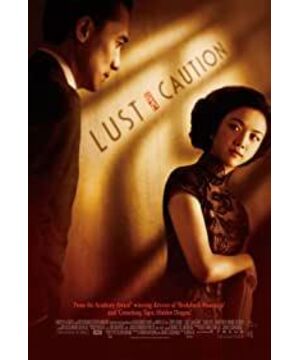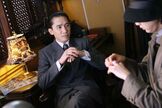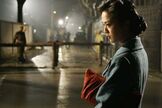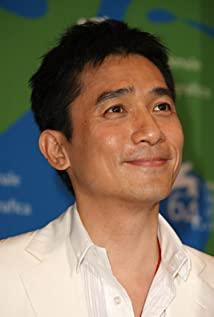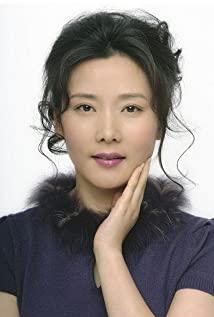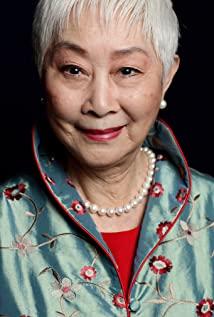For this purpose, I ordered a copy of Eileen Chang's "Tulips", a new edition of Eileen Chang's essays, which includes "Lust, Caution". In response to the occasion, the cover of this book has been promoted with Master Ang Lee's new film. Before that, I didn’t have much of a cold with Eileen Chang. After reading the original work, I deeply felt that this article was inferior to “Love in a Fallen City”. The pleasure of reading the whole novel only came from the moment of “go away” at the end. This moment exhausted Wang Jiazhi’s life and also exhausted it. The full power of the "Lust, Caution" novel. Of course, I prefer Sanmao's interpretation of Zhang Ailing: "Rolling Red Dust". If you read it in comparison, it will be easier to understand and appreciate the reference and imagination of Zhang Ailing's own destiny conveyed in the novel. And the acclaimed Ang Lee adaptation—a massive filler for the past—has become an important reason to go beyond the original. Ang Lee won the Golden Lion again. Apart from the factors of the jury, most of the power still comes from this.
The novel text of Lust, Caution will not be analyzed for the time being. In my opinion, in Ang Lee's supplementary version, the big era in Lust, Caution, like his delicate restoration of the scene, has become an excellent indicator of atmosphere. The story of "Lust, Caution" has become a story about literary youth. A group of literary and artistic youths who are too deeply involved in the play have moved their stage into reality. Teacher Wu has a famous saying, to the effect that most of the die-hard literary and artistic youths are likely to be extreme leftists in politics, such as the avant-garde art in Europe in the 1920s, and the Red Guards in the 1960s. In this sense, "Lust, Caution" The entrance provided to European critics is directly connected to the tradition of the socio-political time of the literary youth. On the other hand, the turbulent social background and the world picture after World War II, as well as the quite international cities-Shanghai and Hong Kong, directly invoke the European audience's memory of war and occupation; The special agent war will guide the genre of the film to suspense and other narrative modes that can be borrowed. In the film, Wang Jiazhi's enthusiasm for the film evokes the audience's sweet memories of film history, and the cosplay of Zhou Xuan's classic appearance in "Angel on the Road" is even more interesting. Unique and typical Chinese" film and this film form an excellent textual inter-construction. Furthermore, the styles of Tony Leung and Tang Wei are also directly connected to the films of World War II that are familiar to the audience.
Based on these designs, the theme of this film is finally defined as the confusion between reality and stage, and the imagination, search and definition of self-identity by young literary and artistic people. Therefore, it is the most ridiculous to criticize this film for "distorting history" and "insulting patriots". History is just an atmosphere. This film does not involve patriotism or politics. On the contrary, it is just a gorgeous show performance art performance. Wang Jiazhi is just too deeply involved in the play. It is not so much that she fell in love with Mr. Yi, it is better to say that she fell in love with her character, or fell in love with the feeling of acting. Just imagine for an actor, what is more worthy of pursuit than using his life to complete a performance that is destined to end?
Yet the film inevitably involves politics. About Kwong Yumin is a person with political ideals, while Wang Jiazhi is just an actor. When saving the country has become a performance, when the patriotic youth's ideal of serving the country is decided by an assassination, when the head of a secret service agency has become the core figure in the "war situation", that kind of "World War II" defined in the traditional narrative. "Carefully veiled. What is available for the audience to consume is another picture: the efforts of the lower-level figures/outsiders to intervene at the heart of the establishment and their involvement/exploitation, as well as the situation of these characters in the confrontation between the top of the two establishments. This mystery is effectively packaged as a desire for the viewer to peep, and further, the narrative provides more visual pleasure when sex and sadomasochism are introduced. In the end, Ang Lee's attempt became more and more clear. On the theme of interpreting politics with artistic performance, the layer of interpreting with sex is superimposed. Wang Jiazhi's several sexual acts were not out of love, but out of political needs. Having said that, Ang Lee's director's intention to dissolve the grand narrative has become clear.
So "Lust, Caution" is really an exceptionally good film. Although the translation into "Lust, Caution" does not convey the pun meaning of the word "Caution" in Chinese. Ang Lee has left an exquisite Shanghai for the audience this time. As for the relationship between this film and Eileen Chang, it is better to say that the film is divided into Ang Lee and Eileen Chang. Eileen Chang tells a moment, while Ang Lee tells a story about life choices. As for the issue of sex scenes, it is still necessary as a breaking point and rhythm control of the film. The rhythm of the mainland version is slightly condensed, which is derived from the scissors that are not graded. However, the nearly two-and-a-half-hour film is not too long, and the name of Master Ang should be well deserved.
View more about Lust, Caution reviews


